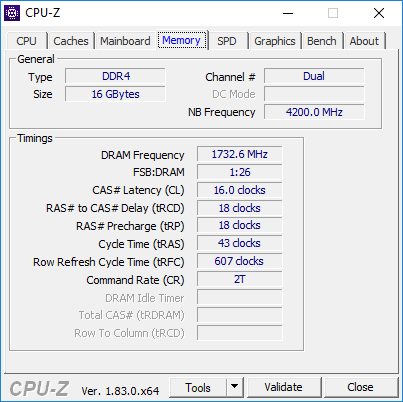ADATA XPG Spectrix D40 16GB RGB DDR4 Memory Review
The Intel Z270 DDR4 Test System
The Intel Z270 based test system includes the following hardware:
| Intel LGA 1151 Z270 Test Platform | ||
| Component | Brand / Model | Pricing |
| Motherboard | ASUS Prime Z270A | Click Here |
| Processor | Intel i7-7700K | Click Here |
| CPU Cooler | Corsair H105 | Click Here |
| Video Card | eVGA GTX 970SC | Click Here |
| M.2 Drive | Kingston HyperX Predator 240GB | Click Here |
| SSD | Intel Pro 2500 180GB SSD | Click Here |
| Power Supply | Lepa G650-MAS | |
| Operating System | Windows 10-Pro 64-Bit v.1709 | Click Here |
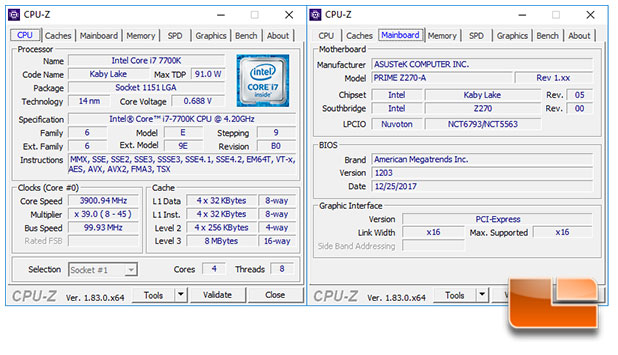
The ASUS Prime Z270A is running the latest BIOS from ASUS, 1203 dated December 25, 2017. The Intel i7-7700K CPU has not been overclocked for this testing, we left it at it’s default setting of 4.2GHz.
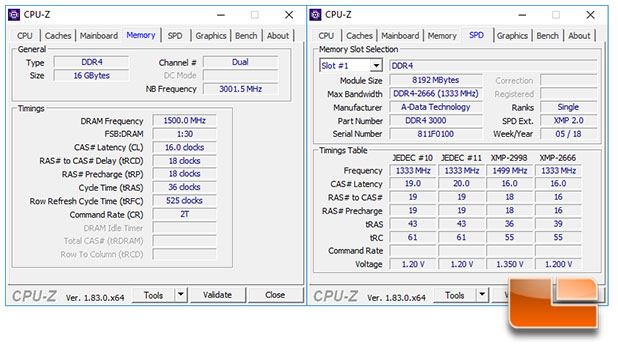
The ADATA XPG Spectrix D40 memory uses XMP 2.0 and includes two profiles, one running at 2666MHz and one for 3000MHz. We will be setting the memory to 3000MHz, which has default timings of 16-18-18-36 2T.
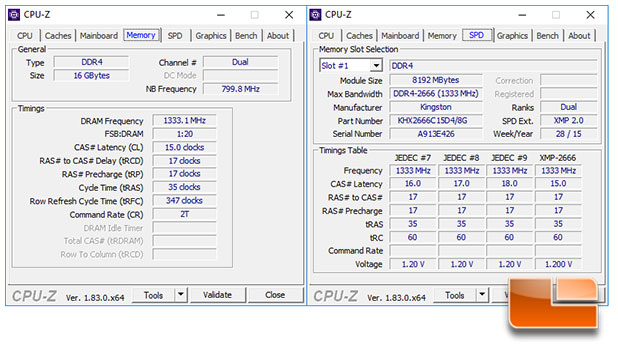
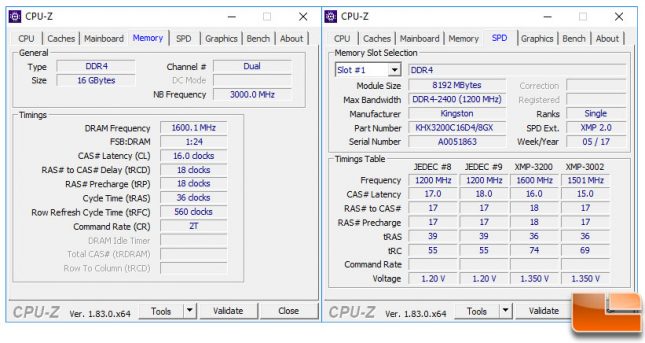
The Kingston Fury DDR4 memory is older, and runs at 2666MHz, with 15-17-17-35 2T timings, while the HyperX Predator is newer and runs with 3200MHz and 16-18-18-36 2T timings.
Overclocking the ADATA XPG Spectrix D40
To overclock the ADATA XPG Spectrix D40, we started with the default settings for 3000MHz. We began to increase the clock speed, and when it would fail, the timings would be loosened and the voltage increased.
It immediately failed to post with the default settings at anything above 3000MHz. With a setting of 1.3V, the Adata Spectrix D40 was able to go to 3333MHz while keeping the default settings. Increasing the speed up to 3466MHz was obtained by adjusting the voltage to 1.35V, while still retaining the default timings. Sadly, this appears to be a hard ceiling, as even loosening the timings did not allow us to increase the speed any further. Taking the memory from a base speed of 3000MHz to 3466MHz is close to a 15.5% increase in clock speed; however the voltage had to be increased to it’s maximum in order to obtain that.

